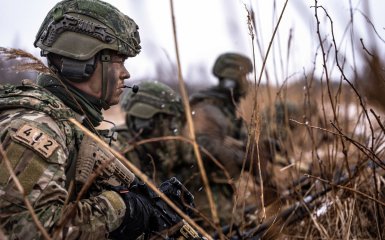In response to the request of Beatrix von Storch, a member of the German parliament, analysts of the Bundestag compiled a report on the probable consequences in the event of the entry of troops of one of the NATO countries into the territory of Ukraine.
How Germany evaluates the aftermath of the NATO states troops introduction into Ukraine
According to the publication, the report of the analysts of the German Parliament's research service indicates that the introduction of a ground military contingent of one of the NATO countries into Ukraine's territory without agreement with NATO's leadership and other member countries of the Alliance will not be a reason for using Article 5 on collective defence.
At the same time, the report indicates that introducing the French Armed Forces's military into Ukraine's territory can be based on the collective right to self-defence prescribed in Art. 51 of the UN Charter.
Analysts from the Bundestag's research service emphasise that if the Russian Federation's reaction against French targets constitutes an "armed attack," this would be a reason for activating Article 5 on collective defence.
Lithuania's President says crucial task of NATO was named amid Russia's war against Ukraine
The President of Lithuania, Gitanas Nauseda, emphasised that the critical task of the Alliance at the moment is to help Ukraine in the criminal war unleashed by Russia.
He addressed the allies at a ceremony dedicated to the 20th anniversary of Lithuania's accession to NATO.
Nauseda thanked them for their unity and firmness in collective defence obligations.
We see the commitment of the Allies everywhere — they protect our skies, the allied military stands next to us. We appreciate the readiness of our allies to protect and defend every centimeter of the Alliance, but we also take the issue of security seriously, emphasised the President of Lithuania.
According to him, Lithuania allocates 2.75% of its GDP for defence today and will be ready to increase this number in the future.
NATO's main task at the moment is to help Ukraine and stop Russia, Nauseda emphasised.




